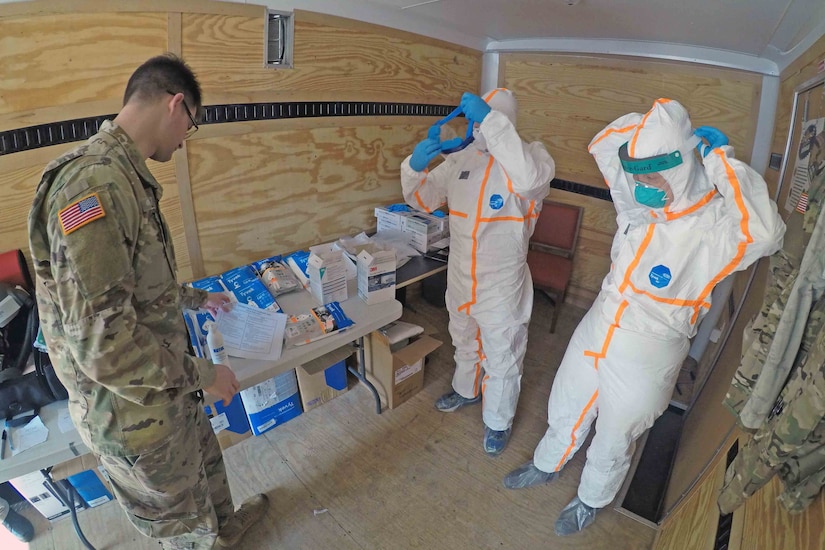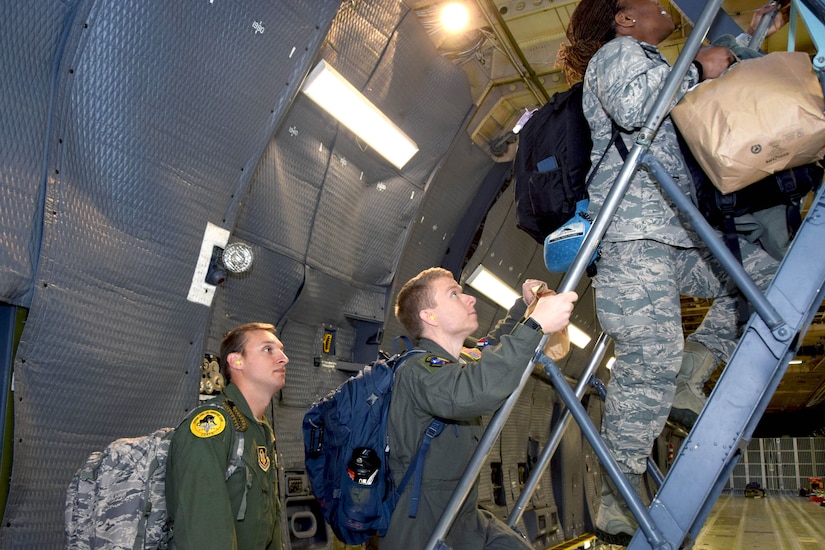The Defense Department is "all in" for the fight
against COVID-19 and to learn from the experience so the department is better
prepared when another pandemic strikes, the Joint Staff's director of joint
force development said.
This is part of DOD's planning efforts in the Pentagon and
elsewhere, Marine Corps Lt. Gen. Daniel O'Donohue said last week in an interview
with defense reporters.
Members of the directorate are part of the crisis management
team working night and day on the DOD's response to the COVID-19 pandemic, the
general said. "We're learning as rapidly as we can in the application of
this fight, but also any future one," he added.
In addition to the team at the Pentagon, a
"shadow" crisis management team is working at the Joint Staff’s
facility in Suffolk, Virginia. That team receives the same information and
conclusions that the Pentagon team does, and it can step in for the Pentagon
team if necessary, the general said. But that team also is looking beyond the
current crisis, he said.
"They're there for redundancy, … but they're also the
development team," O'Donohue said. They're working with the Centers for
Disease Control and Prevention and the Department of Health and Human Services,
he told reporters.
The team also is using artificial intelligence, machine
learning, visualization tools and more to look for patterns or to give advance
notice of possible hotspots, he said.
Both teams are looking for ways to protect the force while
allowing the force to do the military missions the American people expect, the
general said.
The fight against COVID-19 once again highlights the need
for staunch allies and partners, O'Donohue emphasized.
The nature of the pandemic is that it is in different stages
in different parts of the world, he noted, and the United States was able to
learn from the Italian military. Now, he said, other nations are able to learn
from the United States.
"We're learning from them, as militaries go through the
same crisis," he said. "This crisis, as tragic as it so profoundly
is, is exercising us in ways that are relevant, to include cross-learning
across allies and partners."
The crisis also stresses the U.S. government as a whole in
ways that training exercises cannot, he said. DOD and other federal agencies
have long planned what to do in the event of a pandemic, he explained, but it
is different when it's the real thing.
"The management of relationships, the coordination and
complex activity, the whole-of-government approach, decision and information
tools, all will be things we need in any fight," the general said.
"The focus is relevance now, and how do we learn and get better and
exercise those things in the future that have relevance that endures beyond
this crisis."
O'Donohue said the U.S. military is in a good place for
readiness, even with the pandemic forcing cancellation of some exercises.
"We came off a really good year in terms of exercises, so we have a good
basis and readiness level coming into the crisis," he said.
The United States also is at a higher readiness level than
Russia and China, the nation's great-power competitors, O'Donohue said.
"We have a favorable position and relative advantage," he added.
"One of our competitive advantages against any threat is the quality of
the force we have, and educating them with the complexity of the environment
that they're in.
"Education is a key component of our strategic
competitive advantage," he continued. "Expediency [in response to
COVID] got us out of the classroom. I think many of the things we've learned
will be retained and take us where we need to go for the future fight."








